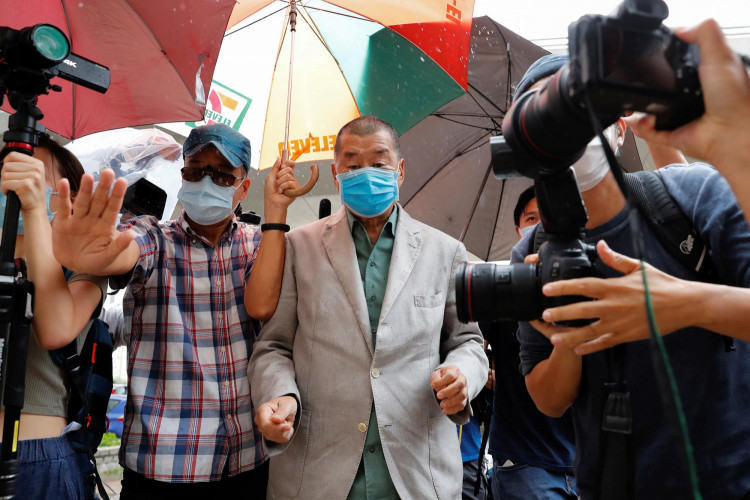Final arguments have concluded in the landmark national security trial of Hong Kong media tycoon Jimmy Lai, with government-designated judges set to deliver a verdict at a later date in a case widely viewed as a test of the rule of law under Chinese rule.
The 77-year-old founder of the now-shuttered pro-democracy newspaper Apple Daily has pleaded not guilty to two counts of conspiracy to collude with foreign forces and one count of conspiracy to publish seditious material. If convicted, he faces life in prison.
The trial, which stretched 156 days-almost double the expected length-has become the most prominent prosecution under the sweeping national security law Beijing imposed after the 2019 protests. The law, combined with the revival of a colonial-era sedition statute, has transformed Hong Kong's once-vibrant press and political landscape.
Asked about the timing of the ruling, Judge Esther Toh, one of three presiding over the case, said it would be announced "in good time." Unlike Hong Kong's traditional common law jury system, national security cases are tried before judges appointed by the government.
Prosecutors argued Lai used Apple Daily and his international contacts to lobby foreign governments to impose sanctions and other measures against Chinese and Hong Kong authorities. They described his alleged collaborations with activist Andy Li, paralegal Chan Tsz-wah, and groups such as Stand with Hong Kong as "long-term and consistent."
Lai's lawyers countered that prosecutors failed to prove he directed or conspired with others after the security law came into effect. Marc Corlett KC told the court that the prosecution's evidence, including Lai's past contact with former U.S. defense officials, "goes in no way to demonstrate" a conspiracy because those individuals were not named as co-conspirators. He also described witness Chan Tsz-wah as a "serial liar."
Another defense lawyer, Robert Pang, said "it is not wrong to support freedom of expression. It is not wrong to support human rights." He argued that Apple Daily's coverage was part of Hong Kong's public debate. Pang dismissed Lai's social media commentary, including criticism of Chinese leader Xi Jinping, as "armchair punditry" akin to conversations "we see every day in cha chaan tengs or over the dim sum table."
Justice Toh pushed back, saying live online chats were "very different from a talk between two old men over dim sum," and stressed that "freedom of expression has limits," citing examples from the U.S. and Britain.
Lai, who has been detained since December 2020, appeared in court wearing a beige blazer and white shirt. He smiled and waved to supporters in the public gallery before being led away. Apple Daily was forced to shut down in June 2021 following a raid on its newsroom and the arrest of executives.






